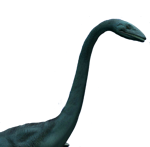Interesting.
It’s been a while since I finished a book. I’ve started and put down 3 in the last 4 months (no great pace anyway) but Deutsch kept me going.
The Fabric of Reality is Deutsch’s defense of the many-worlds interpretation of quantum theory, but it’s a lot more than that, too. It’s also a fairly scathing attack on the current scientific world, which is hardly even attempting to find explanatory mechanisms for quantum theory. It’s admittedly a daunting task, and all of the options are pretty miserable, so it’s hard to blame them, but Deutsch’s epistemology is sound.
The book kind of drags, unfortunately. Deutsch spends a lot of time attacking authors I have not read (and never would have). It’s difficult for me to judge how much if this is straw man, but the rest of the book leads to me believe it’s very little. There’s a confusing mishmash of evolution, quantum theory, quantum computing and classical computing that get mixed up with the arguments about what is science, and that’s a bit frustrating, as these are easily my favorite part of the book, and I would have preferred the scientific arguments be laid out in one half and the philosophy be done in another half.
But man, these scientific arguments are fun! Deutsch lays out a lot of consistent arguments for the many-worlds theory. There’s a discussion of what free will means in many worlds, which he interprets as a statistical cross-section across many universes (I usually eat dinner == In most universes, I will eat dinner tonight). And many worlds has a consistent interpretation for the absolutely baffling kinds of results we can get from double-slit experiments. But the best is quantum computing.
Given that Shor’s algorithm can factor a number of arbitrary size in linear time (needing just one qubit per binary digit), and that the number of operations to factor a large number is on the order of ‘takes more memory than the universe has sub-atomic components’, Deutsch says that quantum computing is the friendly cooperation between universes to solve problems. This is a very interesting idea, and I like it because it seems testable. Shor’s algorithm is not deterministic, and perhaps that’s because some universes would stop helping as they drop out of the computation pool–can we make it work 100% of the time by computing twice as long as required? (in fact, we can–from wikipedia: Using what might appear to be twice as many qubits as necessary guarantees that there are at least N different x which produce the same f(x), even as the period r approaches N/2.)
So, interesting stuff, and to be taken seriously. But I’m still not convinced. All of this comes down to the idea that in quantum mechanics, no element of physical reality can be involved in some of the results we find. There’s just too much information for that to be the case. But does that imply that we’re interacting with millions of alternate universes? It’s not incompatible, but it just doesn’t follow naturally in my mind. However, the theory should have testable predictions, and even if many worlds isn’t true, if some explanation compatible with it is, we could get rid of the ridiculous Copenhagen interpretation once and for all. Wouldn’t that be nice?
The book, as I said before, sort of winds about from topic to topic and ends with the idea of infinite computing resources and immortality as the universe collapses. It’s an exciting time to be alive–nobody bothered to think up information theory before Bell Labs in the 50s, because nobody expected such a thing would have so many answers to physics, but there it is.







